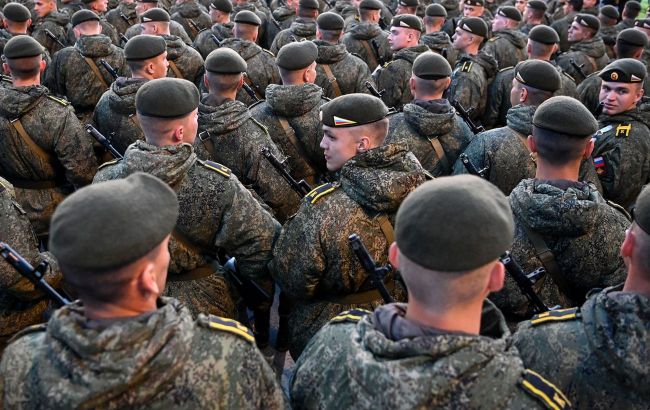Kremlin continues to recruit soldiers for money as long as crypto-mobilization system operates - ISW
 Russian military (photo: Getty Images)
Russian military (photo: Getty Images)
The Kremlin will continue its current efforts to recruit personnel for the front lines for money, at least as long as the crypto-mobilization system is operational. reports the American Institute for the Study of War (ISW).
Analysts report that the Russian government plans to allocate 90 billion rubles (approximately $948 million) for one-time payments to individuals who sign military contracts with the Russian Ministry of Defense between 2025 and 2027. This indicates that the Kremlin intends to continue relying on its current crypto-mobilization efforts to meet personnel needs for the war in Ukraine, as long as the system remains operational.
The Institute for the Study of War (ISW) notes that, at present, Russia is offering a one-time payment of 400,000 rubles or $4,200 for signing a military contract, in addition to amounts provided by regional governments, some of which have exceeded 1 million rubles. This suggests that the Kremlin aims to recruit 225,000 new soldiers through contractual service between 2025 and 2027, assuming current recruitment rates are maintained. However, this seems unlikely given that recruitment rates have consistently increased since 2022.
The report also indicates that Russian authorities have significantly increased financial incentives in recent months, expressing concerns that current recruitment efforts are yielding diminishing returns. Nonetheless, existing recruitment initiatives have proven insufficient for maintaining a steady formation of new forces relied upon by the Russian military to sustain its offensive pace in Ukraine.
ISW assesses that there are medium- and long-term limitations on the number of recruits that can be obtained through Russia's crypto-mobilization campaign. Furthermore, while increasing financial incentives may help, they are unlikely to significantly remove these limitations.
According to analysts, Russian President Vladimir Putin remains committed to the crypto-mobilization effort to avoid declaring another round of partial mobilization, as he did in 2022. At the same time, he retains the option to announce it if necessary.
ISW believes that Putin and Russian military leadership are unlikely to agree to a reduction in the intensity of Russian military operations in Ukraine. They see maintaining the initiative across the entire theater of operations as a strategic imperative.
It remains unclear whether Putin would respond with another round of mobilization if faced with another crisis similar to or more severe than the one experienced in the fall of 2022.

